Mughal Sarai
We said a very warm goodbye to our man Nikhil and turned back towards the ashram. We were fed a simple and delightful meal of roti, rice and vegetable stew and then retired to our room. While we had much to work on, relating the events of the past few days back to you, oh dear and valued reader, we spend only a small bit of time doing this. The remainder of our last hours were spend chatting with Tejbaal Pandey, one of the more senior member of the ashram. Tejbaal had joined as a young lad, but was now slightly older than us. We spoke of our travels and of the state of affairs in India.
Upon arriving to Varanasi, we had discovered that the train to Kolkata which we originally booked was only viable if it was not late by more than an hour or two. This was not something which we could bet on, since no train we had ridden in India had yet arrived less than 3 hours late. So we had booked alternative tickets. The only option which had space in an AC compartment was leaving not from the Varanasi station, but from a nearby, older hub, in a place by the name of Mughal Sarai, at 1:55 AM.
So we had some time to wait around the ashram before we were to take the cab, being somewhat worried that Mughal Sarai was a whistle stop and we would be sitting alone on an open platform in the dead of night in the poorest province in India, we had arranged with the help of Tejbaal to have a cab come pick us up at the ashram and wait with us until the train arrived (likely late). Shortly before the aforementioned cab was to come, Tejbaal arrived in our room bearing gifts. From a plastic sack, he produced three earthenware vessels filled with lassi, like the one which had been available earlier that day outside the temple, and 3 mangos. He explained that this was some of the tastiest lassi and the best mangoes available. We drank the lassi (it was indeed splendid) and he showed us an efficient and ingenious method for consuming the mangoes. He took each mango and kneaded it in his hands, mashing the interior, until the fruit sagged in one’s hand like a water baloon. Then he plucked off the point at the very bottom of the fruit where the stem had once connected it to the tree and from that hole we drank the sweet mango pulp. As we consumed more and more, the mango skin began to fall apart. And soon we removed the pit and ate he meat off that too, finishing by scraping the last bits off the interior side of the skin with our teeth. Delicious.
With sticky hand and heavy heart, we bade farewell to the Bal Ashram and got in the cab headed for Mughal Sarai.
As we drove, it began to rain, and was pouring by the time the cab pulled up outside the station. It was not a whistle stop as we had feared. It was in fact a sizable station, and well lit. We exited the cab, leaving our bags with the driver, and entered the train station.
We’re just trying to be honest; this next part is raw.
The central ticketing and information dispersal room was a giant open space, lit from above by stark florescent lamps which added their drone to the drone of thousands of flies which whizzed through the air, and the faint clicking of insects proclaiming their gigantic thoraxes and crawling on the walls and floor. The entire space, save two clearings, one near the ticketing counter and the other a meandering path which lead deeper into the station, was filled with people sleeping, some on sheets, some on rags, some on the floor, and some in puddles of fowl organic liquids. There were people of every stretch of the floor, on counters where the ticketing windows were closed and propped against walls. We made our way into the room, carefully stepping over people and scanning the room to find the ticketing or information agent who would help us to find the train.
We suddenly heard a round of clapping from across the room. It was our driver, who had parked the car and was clapping to get our attention while picking his way through the giant slumber party towards the correct booth. When we met, we gave him our ticket and he began to fight his way into the giant pack of people, who were sweating profusely and fighting to get their face into the window to have a word with the man inside. He sat calmly in a large, air-conditioned office, and said little with is lips, but volumes with his giant mullet. Our diver, a great fellow, in electric blue sweatpants and a white kurta finally fought his way to the center and told us the train was on time and should arrive on track 1 or 2. Thanking him warmly we took off towards those tracks and the 1st class waiting room which Nikhil assured us there would be somewhere in the station.
The rain was coming down fearlessly and at nearly a 35 degree angle. So the long bridge which spanned the many tracks which came together at Mughal Sarai was very wet on one side where the rain poured in, which forced the residents of this part of the station to cluster on one side. Security or police officers walked this bridge casually enforcing the rule that no one should be waiting up here. This meant giving a whack or two with their bamboo clubs to anyone who piled themselves on the dry edge of the bridge. After the officers passed, people began to collect behind them, catching a few winks until the pendulum swung back again.
We reached platform 1 and 2 to find the situation similar to that of the initial waiting room. People were spread everywhere. The 1st class waiting room was a small brightly lit room, which despite three fans, two of which were whirring fiercely, was muggy and rank. It was also full to the gills with blank faced people waiting. Some, no doubt, for trains. We walked forward and tried to scan the great hand written list of train times, all words were in hindi and the train number on our ticket could not be matched to any on the list. We walked forward, passed single children sleeping in puddles, and old women who’s skin hung from them like tattered sails. Strangely we were not pestered as much by beggars and touts here as in any other station he had yet visited in India. Too many people were sleeping, or so taken by the stoic feel of the place that rise from their catatonic stare would be too much effort. Most of the screens which hung from above, flashed simply “**POWER ON SYSTEM TEST**” unhelpfully. Finally, we found one screen which seemed to by cycling through all the trains which were to arrive in the next few days, showing each train in Hindi then in English. We stared at this screen for a long time, but were also left with no train corresponding to the time or the number on our ticket.
We finally decided that our ticket must be a slight misprint, or the train number had been changed, and that the discrepancy in times might be attributable to arrival vs. departure times. So we threw our bags down on a relatively dry bit of platform, next to a snoring pile of old person and a fellow with a giant black box next to him. The rain began to stop and the humidity rose. Giant bugs began to fly through the air. From time to time Scott or I would notice a bug longer than my thumb crawling on one of us and hustle to brush it off. It was then that we looked over the side of platform down into the tracks.
The bathrooms on Indian trains drain directly onto the tracks, and, though I once saw a weathered sticker asking users to avoid using them in stations, such behavior is practiced widely. So down in the pit, the tracks hovered only inches above an open and festering sewer. Scott let out a disgusted exclamation as we realized that also there were rats, hundreds of rats, emerging gleaming and black from the grime and traversing the tracks, nabbing bits of rubbish, and then plunging back into the putrid slime. My stomach gave a treacherous rumble and I turned away, feeling a little sick. The feeling reverberated up and down my abdomen and I thought longingly about the first class air conditioned bathroom.
We looked up at the sign and we again met with the flashing “Power on System Test.” We hoisted our bags and decided to take a stroll. Half way up the long platform we passed a well lit restaurant, where inside was what was almost certainly the only other white person in the station, a well dressed blond man, sipping a drink. We payed for a couple of Cokes labeled in Urdu (and more importantly admission to the cleaner interior of the restaurant and sat down). I began to rage on the alphasmart and Scott downloaded some data into the computer. Using the technology felt good, tethering us back to a reality we knew and felt more comfortable in. Scott left to go ask about our train at a counter while I continued my typing and coke drinking.
A train arrived on the opposite platform with the same name that was marked on our tickets, “The Rajdani Express,” and I panicked. I gesticulated wildly as Scott through the window of the restaurant over the head of a sleeping woman. He confirmed that it was not our train just as it pulled away. The restaurant closed and we continued to wait outside. It looked like our train was to be late. Another Rajdani express came and went, and we crossed our fingers, hoping we would not be trapped here for an eternity.
We struck up a conversation with the man we had seen in the restaurant. he turned out to be Wally Wolters, an expert ultrasonics technician specializing in the investigation of freshly produced steel rolls. It was very interesting to talk with him, not only because the work he does is quite interesting, but because I myself have also spent some time slaving over a hot transducer. We also had the pleasure of meeting his Indian counterpart, a man named Sankar, who was indispensable in helping us to interpret the mystery of the multiple Rajdani expresses. To our great fortune, they too were on the Rajdani Express to Kolkata, he helped us to confirm it was indeed late (would probably arrive at 3:30 am) and that all trains which originate in Delhi are called the Rajdani express. Rajdani means “capitol.”
As we stood and waited, Scott and I looked over to see one of the sleeping bodies had stirred, shed it’s blankets and had produced a grubby plastic cup to panhandle with. The person, of disputable gender ,was intensely sick. We thought it was likely leprosy, or the even the bubonic plague. Their body was covered with large black open sores, and some pieces of the face and hair seemed to be missing. She began to crawl in a bizarre tarantula like creep towards us, saying nothing but waved the plastic cup amidst the teaming flies, locusts and earwigs. My heart felt like a wrung rag, and we decided to go for another stroll.
Scott began to get antsy. Glancing at the clock and sweating a little more than usual, he began to voice his hopes that the train would be no further delayed. I must admit the air seemed to taste sour and poisonous. We paced for some time and returned to find Wally and Shankar where we had left them and the poor woman no longer to be found.
15 minutes later the train came. We stepped up the to door and the interior was nicer than any first AC car we had yet ridden in. The carpet on the walls was a rich blue, and it smelled of clean re-circulated train air. “This is nice,” Scott said to the conductor. “This is the nicest train train in all of India,” he replied. And I guess it was.
We collapsed into our first AC compartment. They gave us free bottles of water branded with the Indian railway logo and we immediately began to drink deeply. As soon as the computer was booted up we put on Bill Frisell”s Blues Dream and leaned back, allowing out psyches to recuperate and reconnoiter. That night, though I was exhausted and it was almost 4AM, I found it hard to go to sleep. My stomach ached and I was haunted by visions of Mughal Sarai. The next morning, I awoke with a terrible disease.




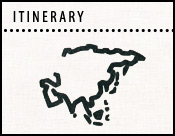

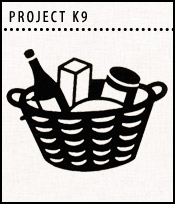
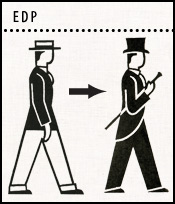
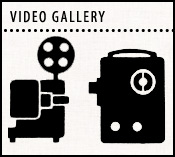
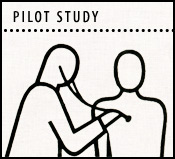
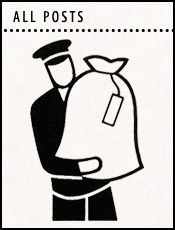





Comments
Phew, and I thought I had it bad on Amtrak today, sitting behind a woman who soiled herself. Woody, are you being a good host to the many micro-beasties calling your body a hotel?
Well, first I tried being hospitable, then I had to get feisty.
Post a comment